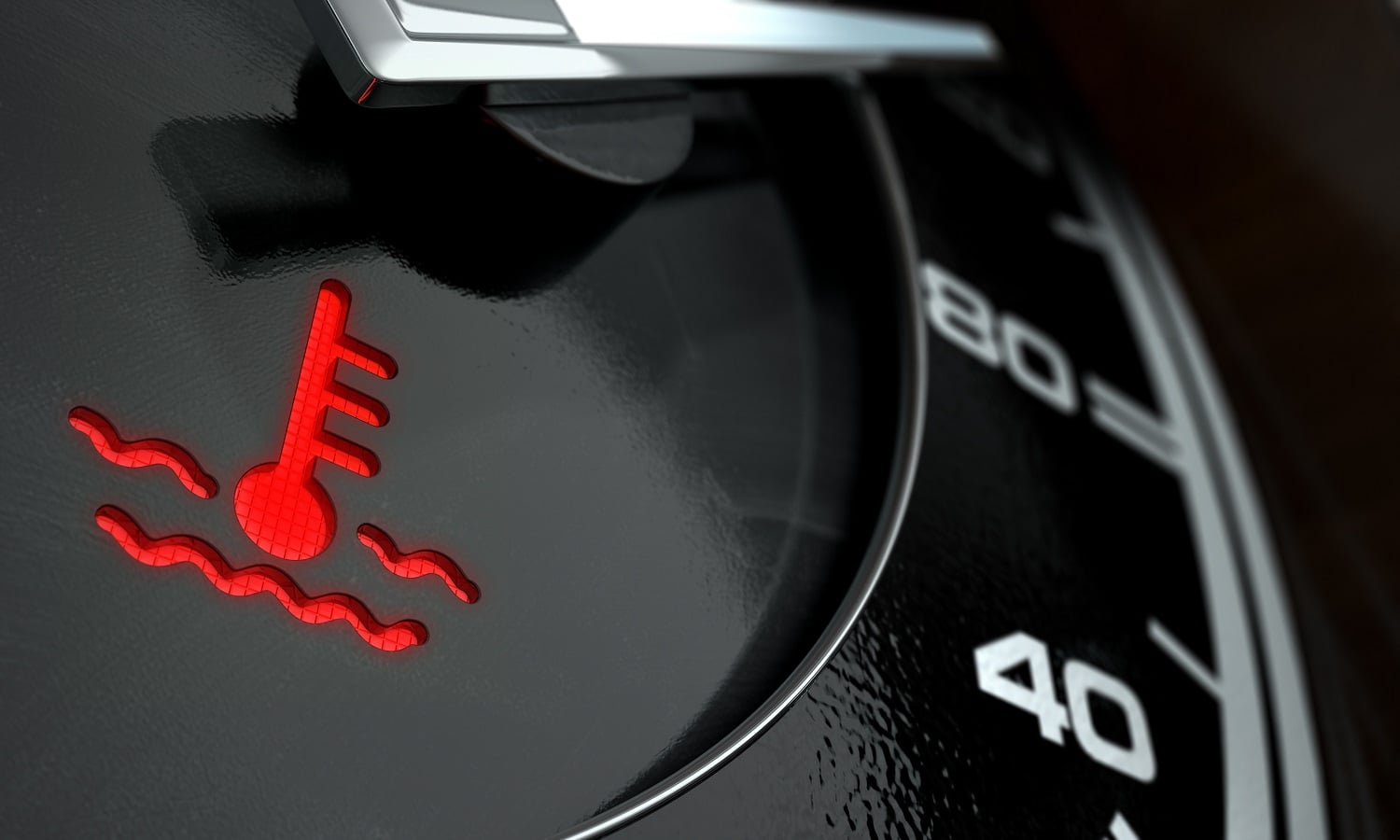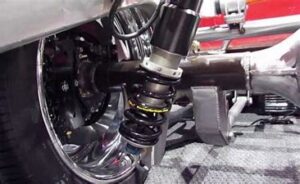Have there ever been any odd things on your dashboard while you were driving? When the engine temperature monitor unexpectedly spikes into the red, you start to fear that your automobile may be gravely damaged. But then, as quickly as it increases, the engine temperature jumps and then gradually returns to normal, confusing you. What’s going on here, and ought you to be worried?
Many drivers may be perplexed by this frequent occurrence, but have no fear, we’re here to clarify it in a straightforward way. The engine temperature of your car may occasionally quickly increase before returning to normal. This article will discuss the causes of this intriguing occurrence and what you should do if it occurs. Now let’s explore the mysteries behind engine temp spikes then returns normal.
Table of Contents
Engine Temp Spikes Then Returns Normal: Common Causes
You’re driving your automobile when you suddenly notice the temperature gauge rising rapidly. But hold on, it returns to normal in an instant. What is happening? Don’t worry; we’ll make it simple to understand.
1. Problems With Coolant Flow:
A unique liquid called coolant is found inside the engine of your car. It aids in cooling the engine. A blocked radiator or an inefficient pump, for example, may occasionally prevent the coolant from flowing freely. When that occurs, the engine heats up excessively, raising the temperature. But when the coolant starts flowing normally once more, the temperature can drop if the problem isn’t too bad.
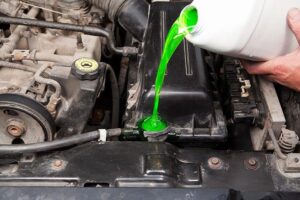
2. A Broken Thermostat:
Think of a thermostat in your automobile that is similar to the one in your house. When the engine needs to cool down, it acts like a gate and lets the coolant in. The engine may overheat if it becomes stuck and doesn’t open when it should. However, a stuck thermostat may unstick itself, allowing the engine to cool down once more, much as a stuck door may occasionally come open.
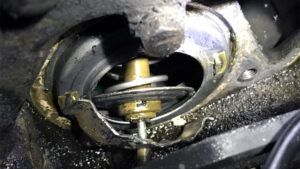
3. Air Bubbles:
In the cooling system of your car, air bubbles have no place. If there is a leak or during repairs, they can get in. These air bubbles can disrupt coolant flow and cause the engine to heat up quickly. However, the coolant might force those bubbles out while you drive, returning everything to normal.
4. Unreliable Temperature Sensor:
The temperature gauge on the dashboard of your automobile receives information about what’s happening inside from a particular sensor. It’s possible for this sensor to malfunction and provide inaccurate data, giving the impression that your engine is hotter than it actually is. However, it might then all of a sudden resume functioning properly and display the accurate temperature.

5. The Impact Of Weather:
Occasionally, it’s not even your car’s fault. Extreme weather conditions, such as extremely hot or cold days, might skew the engine temperature readings. However, the engine returns to its normal operating temperature range as the weather clears.
Therefore, in most cases, when your engine temp spikes then returns normal isn’t a big problem. However, it’s a good idea to have a mechanic look things over if you notice this frequently. It can be a symptom of a deeper problem that has to be resolved to keep your car functioning properly. So keep this in mind the next time your car’s temperature gauge starts acting strange: it’s not necessarily a reason for alarm, but it’s still worth monitoring!
Can I Drive If The Engine Temperature Spikes And Becomes Normal
It is essential to exercise caution if the engine temperature of your car suddenly increases before returning to normal. If the temperature drops quickly, you may be able to drive for a short distance, but it is not recommended for extended distances. It is advisable to have a mechanic examine it because persistent spikes could indicate a problem.
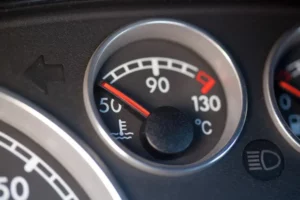
Your engine could be harmed if you’re driving with temperature problems. Always keep a watch on the temperature gauge on your car, and if it increases frequently, have it fixed to prevent serious issues while driving. Security first!
Here Are Some Easy Solutions To Fix This Issue In Detail
Don’t worry too much if the engine temperature of your car spikes before returning to normal. It frequently occurs to drivers. To assist you in dealing with this circumstance, consider these straightforward solutions:
1. Check The Level Of Your Coolant
Your engine may overheat if your coolant levels are low. When the engine is cold, make sure your coolant reservoir is filled to the proper amount. Add a mixture of coolant and water if it’s low.

2. Search For Coolant Leaks
For any indications of coolant leaks, look below your automobile. Coolant can be seen as a green or pinkish-red liquid. Leaks may result in temperature increases. Find one and have a mechanic fix it.
3. Change A Defective Thermostat:
A stuck-close thermostat in your car might result in jarring temperature changes. You can contact a mechanic to replace it.
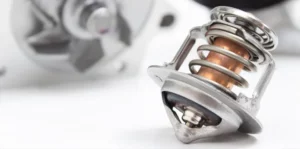
4. Check The Hoses And The Radiator:
A blocked radiator or frayed hoses may occasionally cause the cooling system to malfunction. Check to see if any dirt or debris is on the radiator. Hoses should be replaced if they leak or appear worn out.
5. Observe The Cooling Fan:
A cooling fan in your car keeps the engine from overheating. Your engine may overheat if it isn’t functioning properly. Check it out and, if necessary, have a mechanic fix it.

6. Purge The Cooling System Of Air:
In the cooling system, air bubbles can lead to temperature fluctuations. You can “burp” your car’s cooling system to get rid of them. When the engine is cold to the touch, start it, remove the radiator cap, and let the engine run until it warms up. To aid in air evaporation, gently squeeze the upper radiator hose. The coolant may be hot, so use caution.
7. Change An Ineffective Temperature Sensor:
A faulty temperature sensor may be the cause of your thermometer’s inaccurate readings. To guarantee that you receive accurate readings, a mechanic can replace it.
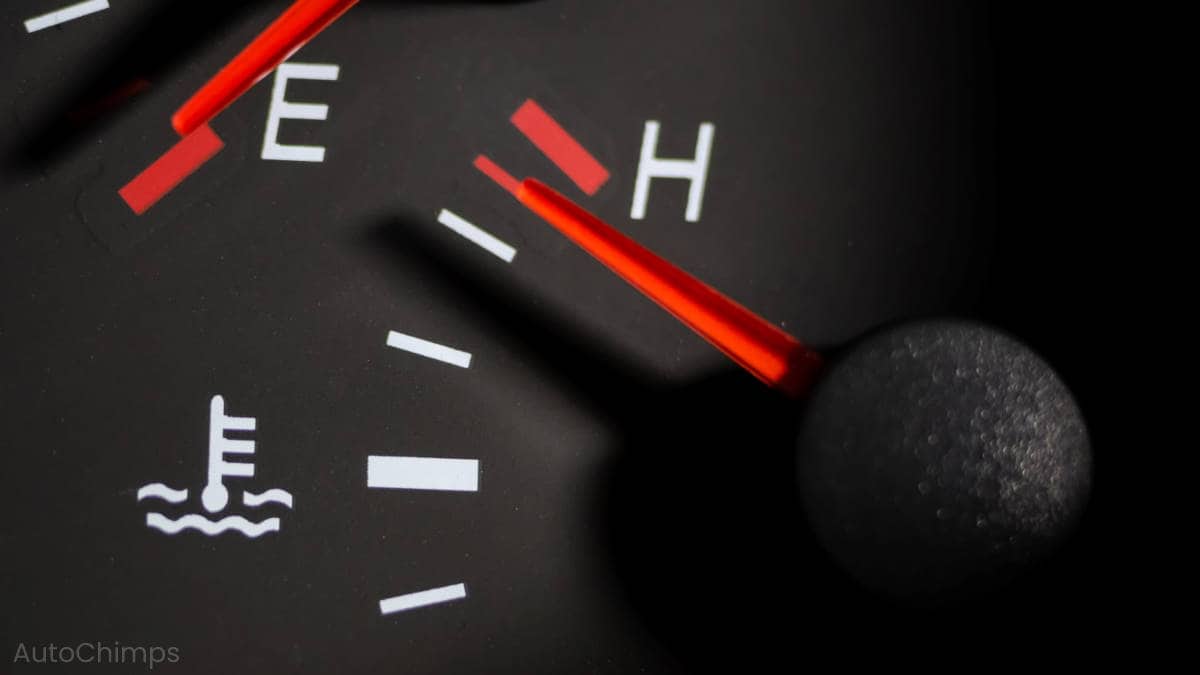
8. Keep An Eye On Outside Influences:
Extreme weather conditions can occasionally cause a short increase in engine temperature. Your engine might operate differently whether the weather is sweltering hot or bitterly cold. Don’t block the radiator with snow or debris to preserve optimal airflow.
9. Consistent Upkeep:
Your best friend is preventive care. Follow the recommended maintenance schedule for your vehicle, change the oil, and monitor the cooling system. Many problems can be avoided with routine checkups.
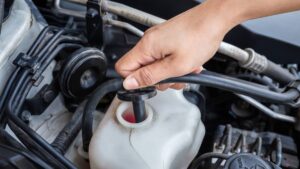
10. Pay Attention To It:
Don’t disregard it if your engine temperature climbs frequently. Your engine might be harmed by persistent overheating. Get it checked out by a qualified mechanic to identify and address the underlying issue.
Hence, it can be perplexing when an engine’s temperature jumps and then returns to normal. To keep your engine operating smoothly and safely, stay up with routine maintenance and visit a mechanic if the problem persists.
What Is The Repairing Cost To Fix This Issue?
Depending on the underlying problem, the cost of fixing engine temperature spikes that then go back to normal can vary. Costs for simple repairs like changing a thermostat or fixing coolant system issues could range from $100 to $300. A defective temperature sensor may cost $50 to $150 to replace.

Repairs, on the other hand, could cost between $300 and $800 or more if the issue is more serious, such as a broken water pump or radiator. Remember that labour costs and part costs might also affect the final cost. For a precise diagnosis and a pricing estimate customized for your case, speak with a professional.
Conclusion:
In summary, when your engine temp spikes then returns normal, it can be caused by issues with coolant flow, a clogged thermostat, or air bubbles in the cooling system may be to blame for your car’s engine temperature. Even a temperature sensor gone bad or bad weather could be to blame. Most of the time, if it passes fast and doesn’t occur frequently, there’s usually little need for alarm. However, to avoid any significant engine damage, it’s imperative to have it checked by a mechanic if it persists. Keep in mind that keeping your engine operating smoothly requires routine car maintenance.
